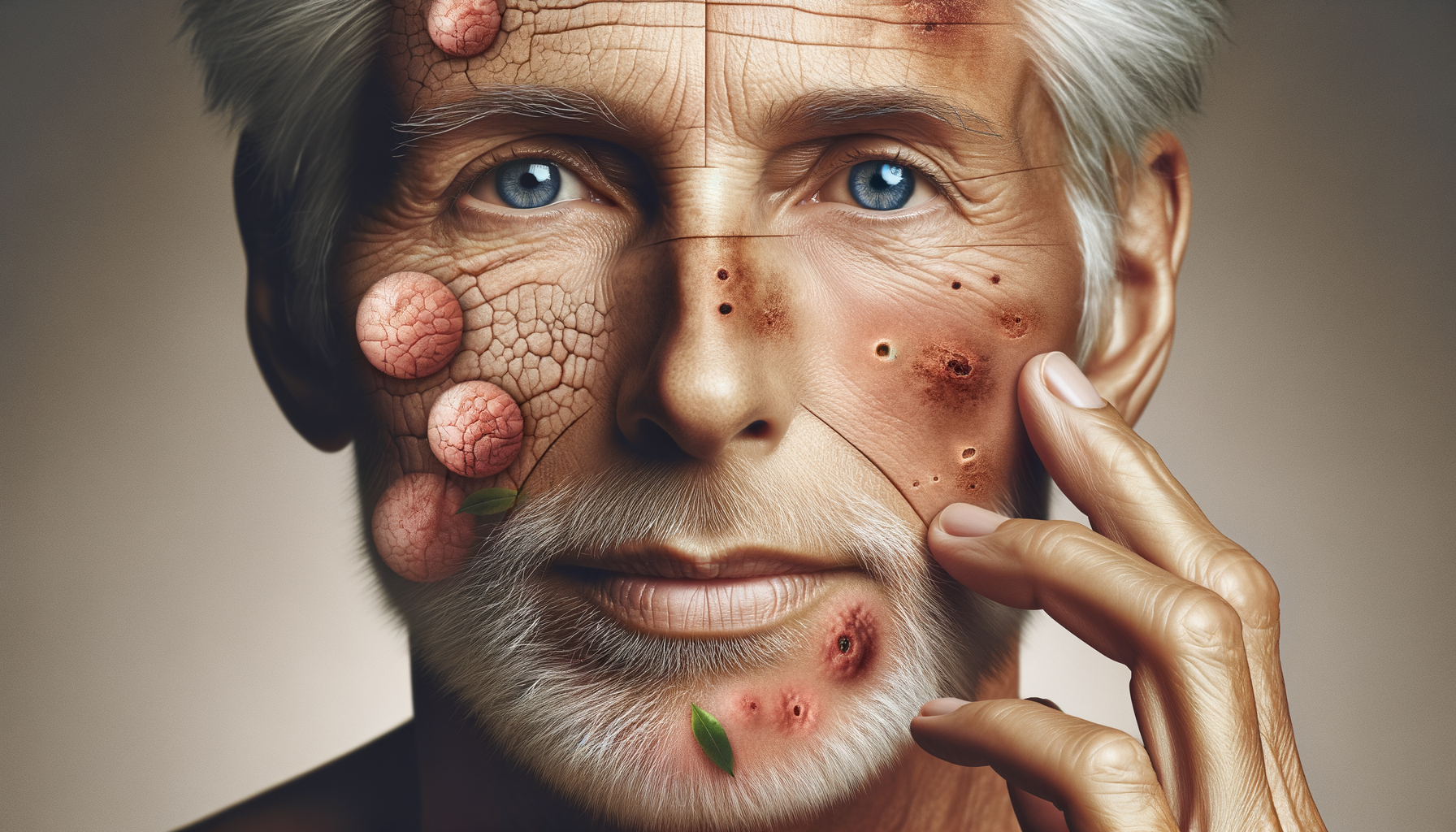What To Know About Common Skin Problems In Seniors Over 70 And Treatments
Are you concerned about the skin changes that come with aging, especially after turning 70? Understanding common skin problems in seniors and effective treatments can help maintain healthy, comfortable skin. In this post, we’ll explore the most frequent skin issues faced by seniors and how to address them.

Thinning Skin and Increased Sensitivity
As we age, our skin undergoes several changes, one of the most notable being the thinning of the skin. This condition is primarily due to the reduction in collagen and elastin, the proteins that provide structure and elasticity to the skin. Thinning skin is more prone to bruises, tears, and increased sensitivity to external factors like sun exposure and harsh weather conditions. This heightened sensitivity can lead to discomfort and a higher risk of skin infections.
Understanding the underlying causes of thinning skin can help in managing this condition effectively. Age-related hormonal changes, particularly a decrease in estrogen levels, contribute significantly to this issue. Additionally, prolonged sun exposure over the years can accelerate skin thinning by damaging the collagen fibers. To mitigate these effects, it is crucial to adopt a skincare routine that includes the regular application of broad-spectrum sunscreen, even on cloudy days, and the use of gentle, hydrating cleansers and moisturizers.
Moreover, incorporating a diet rich in antioxidants, such as vitamins C and E, can support skin health from the inside out. These nutrients help combat oxidative stress, a major contributor to skin aging. Regular exercise also promotes healthy circulation, delivering essential nutrients to the skin. By understanding and addressing the factors that contribute to thinning skin, individuals can maintain healthier, more resilient skin as they age.
Age-Related Skin Conditions: Actinic Keratosis and Lentigines
With advancing age, certain skin conditions become more prevalent, including actinic keratosis and lentigines. Actinic keratosis presents as rough, scaly patches on the skin, primarily due to prolonged exposure to ultraviolet (UV) rays. These lesions are considered precancerous and can potentially develop into squamous cell carcinoma if left untreated. Regular skin examinations by a dermatologist are essential for early detection and management.
Lentigines, commonly known as age spots or liver spots, are flat, brown patches that appear on sun-exposed areas of the skin. Unlike freckles, lentigines do not fade with reduced sun exposure, making them a more permanent feature of aging skin. While they are generally harmless, many individuals seek treatment for cosmetic reasons. Options include topical treatments containing retinoids or hydroquinone, laser therapy, and chemical peels, all aimed at reducing pigmentation and improving skin appearance.
Preventive measures play a crucial role in managing these age-related skin conditions. Consistent use of sunscreen with an SPF of at least 30, wearing protective clothing, and avoiding peak sun hours can significantly reduce the risk of developing actinic keratosis and lentigines. Additionally, a diet rich in fruits and vegetables, particularly those high in antioxidants, can help protect the skin from UV damage.
Managing Dryness and Itchiness: A Guide to Hydration and Relief
Dryness and itchiness are common complaints among seniors, often exacerbated by environmental factors such as low humidity and harsh soaps. As skin loses its natural oils with age, maintaining adequate hydration becomes essential for comfort and skin health. The first step in managing dryness is to choose gentle, fragrance-free cleansers that do not strip the skin of its natural moisture.
Moisturizing is a crucial component of any skincare routine for seniors. Opt for rich, emollient creams or ointments that lock in moisture and provide a barrier against environmental irritants. Ingredients like ceramides, glycerin, and hyaluronic acid are particularly effective in retaining skin hydration. Applying moisturizer immediately after bathing, when the skin is still damp, can enhance its effectiveness.
In addition to topical treatments, lifestyle changes can also alleviate dryness and itchiness. Staying hydrated by drinking plenty of water and using a humidifier at home can help maintain skin moisture levels. For those experiencing persistent itchiness, over-the-counter hydrocortisone creams or antihistamines may provide relief, but consulting a healthcare professional is advisable for ongoing issues. By taking a comprehensive approach to skin care, seniors can enjoy more comfortable and healthy skin.